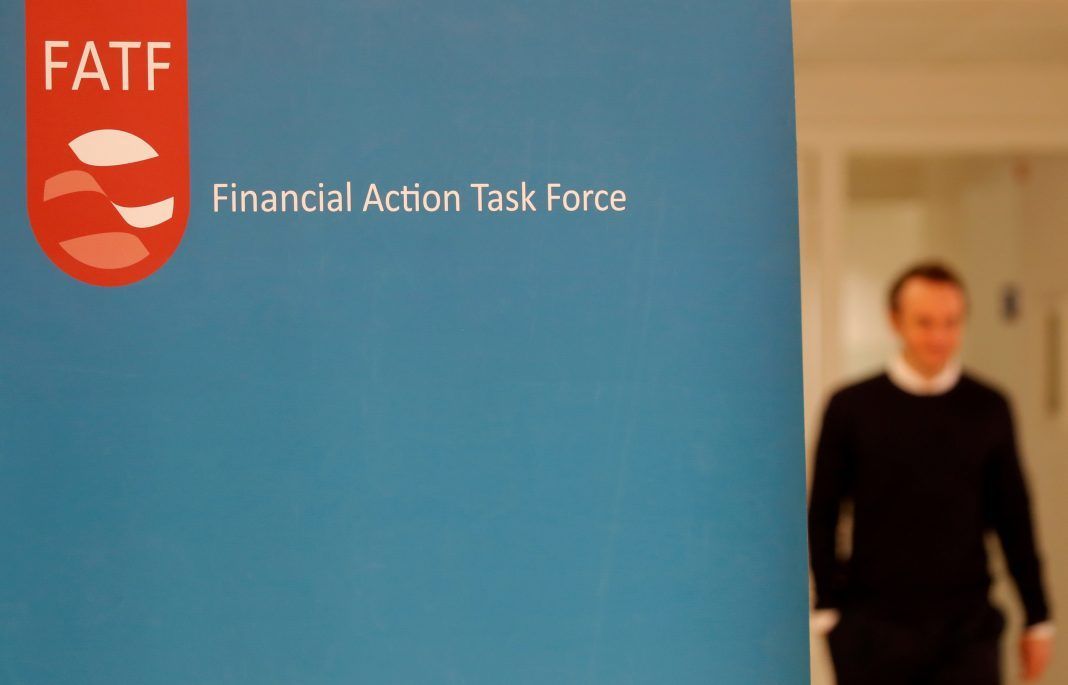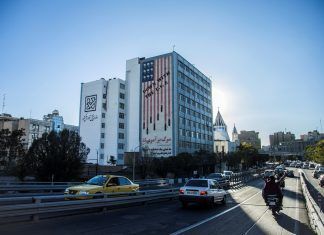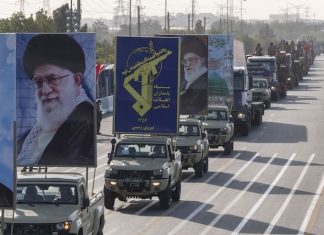By Ahmad Rafat
On February 21, the Financial Action Task Force (FATF) blacklisted Iran for failing to enact the Palermo Convention, the Countering the Financing of Terrorism (CFT) and Anti-Money Laundering (AML) acts.
The decision came at the end of a three-day meeting in Paris, attended by 800 delegates, representing the global network of 205 countries and jurisdictions, and international organizations.
“Given Iran’s failure to enact the Palermo and Terrorist Financing Conventions in line with the FATF Standards, the FATF fully lifts the suspension of countermeasures and calls on its members and urges all jurisdictions to apply effective countermeasures, in line with Recommendation 19,” the statement by the FATF said. “Iran will remain on the FATF statement on (High-Risk Jurisdictions Subject to a Call for Action) until the full Action Plan has been completed.”
“If Iran ratifies the Palermo and Terrorist Financing Conventions, in line with the FATF standards, the FATF will decide on the next steps, including whether to suspend countermeasures,” the statement added. “Until Iran implements the measures required to address the deficiencies identified for countering terrorism financing in the Action Plan, the FATF will remain concerned with the terrorist financing risk emanating from Iran and the threat this poses to the international financial system.”
The FATF is an intergovernmental organization founded in 1989 on the initiative of the G7 to develop policies to combat money laundering and terrorism financing. It operates under the auspices of the Organization for Economic Cooperation and Development (OECD), an intergovernmental economic organization with 36 member countries, founded in 1961 to stimulate economic progress and world trade.
The United Nations Convention against Transnational Organized Crime (UNTOC, also called the Palermo Convention) is a 2000 UN-sponsored multilateral treaty against transnational organized crime.
[aesop_image img=”https://kayhanlife.com/wp-content/uploads/2020/02/2019-10-18T105930Z_1082540893_RC16CEF79120_RTRMADP_3_PAKISTAN-MONEYLAUNDERING-SANCTIONS-scaled.jpg” panorama=”off” credit=”REUTERS/Charles Platiau” align=”center” lightbox=”off” captionsrc=”custom” caption=”FATF (the Financial Action Task Force) President Xiangmin Liu will attends a news conference after a plenary session at the OECD Headquarters in Paris, France, October 18, 2019. ” captionposition=”left” revealfx=”off” overlay_revealfx=”off”]
The FATF has continued to keep North Korea on its blacklisted countries and added war-torn Yemen to its gray list. Failure to curb the spread of terror funding and money laundering would move a country from the FATF’s gray list to its blacklist.
While the Majlis (Iranian Parliament) passed the CFT and Palermo Convention proposals more than a year ago, the Guardian Council and the Expediency Council, however, rejected both bills.
The FATF’s decision to blacklist Iran, which excludes the country from international financial banking and financial systems, coincided with the Majlis elections, which saw the lowest voters’ turnout since 1979. In contrast to 2012 and 2016, when the turnout was 66 percent and 66 percent, respectively, only 42 percent of the eligible voters in Iran went to the ballot boxes this time around. The results handed a big win to the hardliners.
Recommendation 19 also states: “Countries should be able to apply countermeasures when called upon to do so by the FATF. Countries should also be able to apply countermeasures independently of any call by the FATF to do so. Such countermeasures should be effective and proportionate to the risks.”
It is, however, highly unlikely that any country would conduct banking and financial transactions with Iran, given the risk. European countries have said that they will cease all banking and financial dealings with Iran.
[aesop_image img=”https://kayhanlife.com/wp-content/uploads/2020/02/2019-11-04T111740Z_1670850742_RC1B145C2250_RTRMADP_3_IRAN-USA-EMBASSY-scaled.jpg” panorama=”off” align=”center” lightbox=”off” captionsrc=”custom” caption=”FILE PHOTO: State sponsored protesters burn an FATF banner as they attend an anti U.S. demonstration, marking the 40th anniversary of the U.S. embassy takeover, near the old U.S. embassy in Tehran, Iran, November 4, 2019. REUTERS./” captionposition=”left” revealfx=”off” overlay_revealfx=”off”]
European banks are not Iran’s primary problems, however, given that most if not all of them have severed their business ties with Tehran since the U.S. withdrew from the 2015 Joint Comprehensive Plan of Action (JCPOA), better known as the Iran nuclear deal, in May 2018 and reimposed stringent economic sanctions on the country.
By blacklisting Iran, the FATF has forced Tehran’s allies, including China, Russia, Iraq, and Turkey, and most Asian banks to stop cooperating with the country’s financial institutions. China and Russia had previously warned that they would cease dealing with Iranian banks if FATF blacklisted the country.
During his weekly briefing on February 22, the Spokesman for Iran’s Foreign Ministry Abbas Mousavi described the FATF’s decision as “politically motivated,”
In comments reported by the Islamic Republic News Agency (IRNA), Mr. Mousavi said: “Unfortunately, this politicization is endemic to international mechanisms. Countries such as the United States, Saudi Arabia, and the Zionist regime control the outcome by politicizing the process, given that they exert massive influence over these mechanisms.”
“Saudi Arabia as the central bank for terrorism and the Zionist Regime as a state sponsor of terrorism, support global terrorist organizations and commit the most heinous crimes,” Mousavi asserted. “They blacklisted Iran, despite the country’s complete cooperation and transparency.”
Meanwhile, the governor of the Islamic Republic of Iran Central Bank Abdolnaser Hemmati has assured the public that the country’s banking system can function despite crippling sanctions and the recent move by the FATF.
“Despite unfair sanctions and [the U.S. policy of] ‘maximum pressure’ and the recent ruling by the FATF, our financial institutions have continued to conduct business with the international monetary systems that are not subject to embargoes,” Mr. Hemmati recently told Tasnim News Agency. “The Central Bank will work closely with other economic and financial institutions to facilitate the country’s trade industry.”
Some political and economic analysts, however, argue that the FATF should have never removed Iran from its blacklist in 2016.
Tom Keatinge, the director of the Center for Financial Crime and Security Studies at the UK-based Royal United Services Institute (RUSI), believes that the decision to remove Iran from the blacklisted countries in 2016 was a political decision which lacked expert analysis.
“The FATF suspended Iran’s blacklist status for 12 months considering its proposed Action Plan to address its strategic anti-money laundering and countering the financing of terrorism (AML/CFT) deficiencies,” Mr. Keatinge said on February 6. “This seemed a curious stance. As a professional body, one imagines the FATF decides technically to the exclusion of politics.”
Although Iran remains defiant in the face of mounting pressure, many senior government officials have expressed their concerns about the recent developments.
In recent days, Iran’s vice president for legal affairs, Laya Joneydi, has repeatedly warned that being blacklisted by the FATF “will cause serious problems in Iran’s relationships with 200 countries.” Ms. Joneydi pointed out that the FATF’s decision will “also legitimize [U.S.] sanctions in those 200 countries.”
President Hassan Rouhani’s Chief of Staff, Mahmoud Vaezi, also believes that FATF’s decision to blacklist the country will further aggravate the economic crisis in Iran.
Iran’s Oil Minister Bijan Namdar Zanganeh recently said that “the Ministry had no money.” Mr. Zanganeh noted that the country had invested $30 billion in petrochemical projects that remain unfinished.
Being blacklisted by the FATF combined with stringent U.S. sanctions will ultimately cause the total collapse of the Iranian economy.
According to international energy organizations, Iran’s oil export for January dropped to 227,000 barrels per day (bpd).
The annual report by the Economic Research Department of Iran Chamber of Commerce, Industries, Mines and Agriculture (ICCIMA), said that Iran’s export to the EU dropped by 98 percent in 2019 compared to 2018.
U.S. Sanctions and FATF’s blacklisting of the country will affect not just senior officials of the Islamic Republic, but all Iranians.
Fereydoun Khavand, an economist, told Kayhan Life that most countries would close bank accounts of all Iranian citizens, even students studying abroad.
Iran’s Deputy Foreign Minister for Economic Affairs Gholamreza Ansari had previously warned that failure to enact the Palermo Convention, the CFT, and the AML would cause foreign banks to close all accounts held by Iranian nationals.
In comments reported by the Tehran-based Entekhab news website on February 6, Mr. Ansari said: “Only Iranians with dual nationality who hold a passport from another country can keep their bank accounts.”
In recent months Italy, China, Armenia, and many Asian countries have closed bank accounts of their Iranian customers.
Meanwhile, the rial fell to 140,000 to a dollar in days preceding the FATF’s move to blacklist Iran. The rial has also performed poorly against other foreign currencies. The sharp drop in the rial’s value naturally increases the inflation rate and decreases people’s purchasing power.
Some experts believe that the Tehran Stock Exchange (TSE) will shut down soon and might even collapse altogether.
The Islamic Republic will ultimately have to use unorthodox means and third parties to import goods, which will naturally increase prices by 25 to 30 percent, except for medicine and food.
The U.S. and Swiss government rolled out a joint humanitarian scheme on February 3, which allows companies to provide prescription medicine to Iran without being penalized by stringent U.S. sanctions.
[Translated from Persian by Fardine Hamidi]








